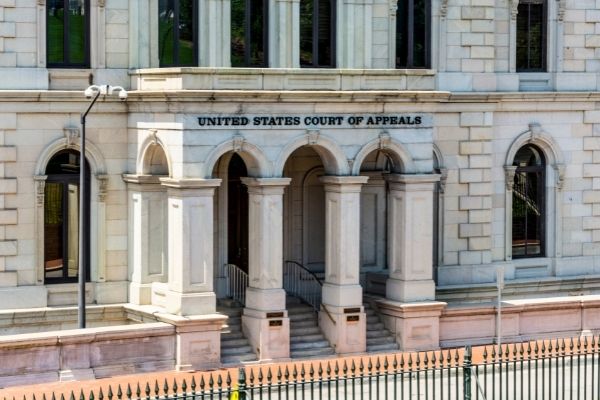Federal Crime Lawyer: Protecting Your Legal Rights Against Serious Federal Charges
Federal Crime Lawyer: Protecting Your Legal Rights Against Serious Federal Charges
Blog Article
Debunking the Refine of Federal Appeals: What You Need to Know
Navigating the elaborate realm of government allures can often appear like passing through uncharted waters for those unknown with the procedure. Recognizing the subtleties of appellate court territory, the intricacies of filing a notice of appeal, presenting a compelling brief, and making a convincing oral disagreement are important elements that can dramatically influence the end result of an instance. By unwinding the layers of intricacy bordering federal charms, individuals can gain a clearer understanding right into the devices that control this critical point of the legal system.
Understanding Federal Appeals Refine
Exploring the complex world of the federal appeals process unveils a structured and methodical journey through the judicial system. Federal appeals act as a critical device for examining decisions made by lower courts. Recognizing this process is vital for anybody associated with lawful procedures at the federal degree.
The procedure generally begins with an event dissatisfied with a lower court's judgment filing a notice of appeal. This causes a testimonial by a higher court, where a panel of courts examines the legal debates offered by both parties. Briefs laying out the legal thinking behind each celebration's position are sent, and oral debates may be heard to clarify intricate issues.
The appellate court's decision is based on a complete exam of the reduced court's process and the arguments presented. The judges do not reexamine facts however focus on whether legal errors occurred that affected the lower court's decision. When the appellate court gets to a decision, it can verify, reverse, remand, or modify the lower court's ruling, providing quality and finality to the lawful disagreement. Recognizing this procedure is crucial for navigating the intricacies of government charms efficiently.
Appellate Court Jurisdiction Explained
Appellate court territory refers to the extent of situations that a particular appellate court has the power to determine and evaluate upon. Unlike test courts that hear situations for the first time, appellate courts are limited to assessing decisions made by reduced courts.
Appellate courts have jurisdiction over certain kinds of instances, usually those entailing legal mistakes, step-by-step issues, or inquiries of law instead than valid disputes. The territory of appellate courts is usually described in laws and legislations that control the court system. Understanding appellate court jurisdiction is critical for parties associated with the allures procedure as it identifies whether a situation is qualified for testimonial and the extent to which the appellate court can intervene in the lower court's choice.
Filing a Notification of Allure
The initial step in commencing the federal charms procedure entails submitting a Notification of Appeal with the suitable appellate court. This important record officially informs the court and the various other events entailed in the case that the appealing party intends to seek a review of the lower court's decision. Filing a Notice of Appeal is a strict procedural requirement that establishes the appellate process moving.
When preparing the Notice of Appeal, it is vital to make sure conformity with the certain policies and standards of the appropriate appellate court. federal appeal lawyers. The document must generally include info such as the instance name, the lower court's name, the day of the judgment being appealed, and a succinct declaration showing the grounds for the appeal

Rundown and Dental Disagreement
In the appellate procedure, presenting composed briefs and taking part in oral debates play essential duties in advocating for the appealing event's position prior to the appellate court. Briefs are comprehensive legal records that outline the celebrations' debates, legal authorities, and analysis sustaining their placements. These written entries offer the court with a thorough understanding of the facts of the case, the pertinent legislation, and why the appealing event thinks the lower court's decision ought to be reversed.
Adhering to the submission and review of the briefs, oral disagreements supply the parties a chance to additional clarify their placements, resolve any questions the appellate judges may have, and emphasize bottom lines from their created briefs. Oral disagreements are a possibility for the lawyers to encourage the courts via spoken campaigning for and feedbacks to inquiries from the bench.
Both the written briefs and oral arguments are important elements of the appellate process, enabling celebrations to provide their situation completely and compellingly before the appellate court. - federal crime lawyer
Obtaining the Appellate Court Choice
The appellate court's decision is usually supplied in a composed layout and outlines the court's final thoughts on the lawful concerns provided, the thinking behind their decision, and the judgment made. The time structure for receiving the appellate court's decision weblink can differ, yet courts strive to supply timely resolutions. Whether the appellate court verifies, turns around, or remands the reduced court's decision, comprehending the effects of the ruling is important for all events involved in the appellate process.
Final Thought
Understanding the appellate court jurisdiction, submitting a notification of allure, preparing briefs, and offering dental debates are all essential components of this process. Ultimately, receiving the appellate court choice can give quality and resolution to lawful disagreements.
As we advance from comprehending the federal appeals procedure to studying the intricacies of appellate court territory, a basic element comes to light relating to the authority and restrictions of these higher courts in the lawful landscape. Appellate court territory refers to the range of cases that a particular appellate court has the power to determine and examine upon. Unlike trial courts that hear instances for the very first time, appellate courts are limited to assessing choices made by lower courts. Understanding appellate court territory is vital for parties involved in the allures process as it determines whether an instance is eligible for review and the degree to which the appellate court can intervene in the reduced court's decision.

Report this page